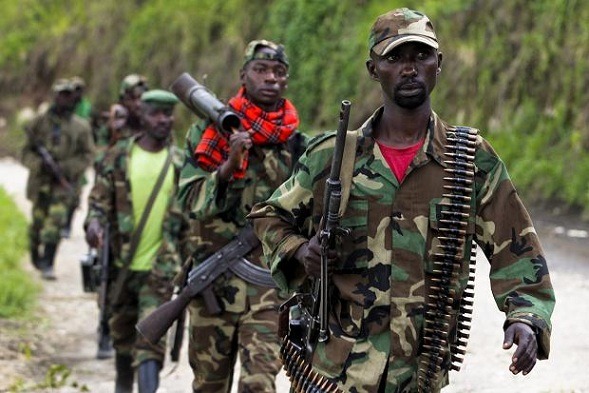Politics
The Resurgence of Genocidaires in the DRC: Tshisekedi and the Threat to the Tutsi

Former masterminds of the genocide against the Tutsi, once condemned by the International Criminal Tribunal for Rwanda (ICTR), have reemerged alongside President Tshisekedi after serving their sentences. Under his rule, the hateful ideology has revived, fueling an extermination agenda that targets Congolese Tutsis.
In a compelling statement from November 2023, the UN Special Adviser on the Prevention of Genocide painted a grim picture of the situation in the DRC: widespread hate speech, the absence of independent mechanisms to curb calls for violence, politicization of identity, the proliferation of militias, and systematic attacks on the Tutsi based on their ethnicity and perceived allegiances to neighboring countries. This alarming observation, voiced by an international institution, serves as a critical warning.
Tshisekedi, extending an alliance to Justin Bitakwira—an ex-minister sanctioned by the European Union for inciting violence and hate against the Banyamulenge—seems to be pursuing a broader plan: destabilizing Rwanda. His collaboration with the FDLR, reluctance to disarm them despite Angola’s mediation efforts, and closeness to Jean-Luc Habyarimana, the son of one of Rwanda’s darkest figures, reveal a grim intention.
The signs are undeniable. Meetings in Burundi between President Ndayishimiye and FDLR and FLN forces, a surge in hate speech, and political manipulation all point to a carefully orchestrated strategy of destabilization, where ideology and violence converge.
The past remains vividly alive, echoing 1994, with refugee camps along the Rwandan border mixing civilians and ex-FAR, camps sustained by arms and veiled political agendas under the guise of humanitarian aid. It was during this period that Belgian Christian Democrats fostered the formation of the RDR political party within these camps.
Today, this same pattern repeats itself, subtly altered yet chillingly recognizable. The Bruguière report, now seen as a political tool, paved the way for the Mapping Report. Dr. Mukwege, once a Nobel laureate, now faces tarnished credibility due to corruption scandals and questionable associations.
Distortion of facts, the reversal of responsibility for the Tutsi genocide, and the rise of denialist rhetoric have become weapons of choice. Charles Onana, a self-proclaimed researcher, is among its most absurd proponents.
Hatred spreads from eastern DRC to other regions, including Burundi. The Congolese Tutsi’s citizenship is questioned, Rwanda and its president are blamed for all ills, and a false narrative of a “double genocide” is promoted.
Behind this shadowy network, Belgium, especially Flanders, operates in the background, a hub of denialism and tacit support for the FDLR. Jambo ASBL, an association of descendants of genocidaires, finds fertile ground here for its operations.
The agenda is clear: weaken post-genocide Rwanda, sow discord, and fuel hatred. The tools are many—disinformation, manipulation of internal groups—all aimed at creating a climate of fear and uncertainty, where institutions falter, and society fractures.
If this spiral is not halted, the consequences will be dire: increased violence, political crises, and economic collapse. But this chaos is not accidental; it serves hidden agendas far removed from the interests of the Rwandan people.
In the face of these threats, vigilance is imperative. The fight against disinformation is the first line of defense, and it must be unyielding. This battle is not just about preserving the truth; it’s about protecting the very essence of a nation that, after surviving the unspeakable, refuses to fall again.








